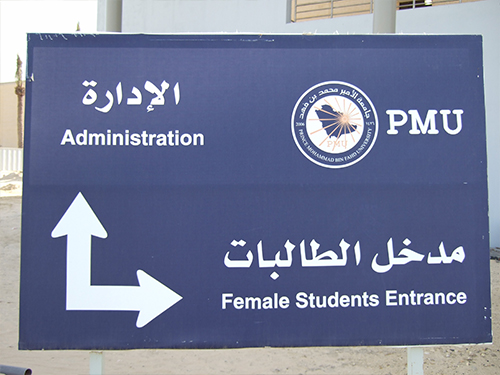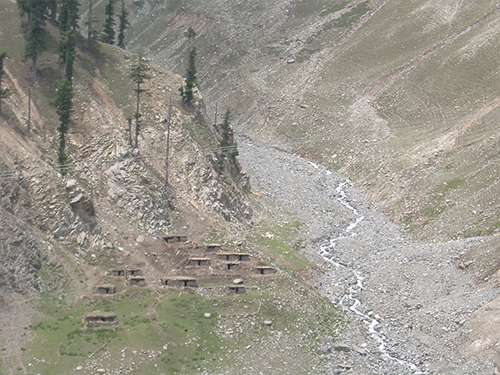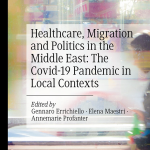Call for papers
Bridging the gap between origins and destination: migration patterns from the Muslim world
Workshop and Publication of Edited Book
Free University of Bolzano-Bozen
11-12 December 2018
As the impetus of globalization continues to gather energy, more and more emigrants leave home pursuing dreams of a
better life for themselves and their families. The Islamic immigrants converging on Europe come from widely divergent
communities scattered throughout, primarily, North Africa, the Middle East and South-East Asia. In other words, they
represent a great variety of local cultures. Cross cultural pluralism on the part of the Nation States comprising the
European Union is one avenue for moving the dialogue between different cultural frameworks into a more compatible
form.
This change of residence location leads to a cultural frame switching entailing the development of bicultural identities
flexible enough to adapt to new societal structures while retaining cultural citizenship in one’s country of origin. This
process calls for a re-conceptualization and application of new paradigms for designing ways in which aspects of
acculturation might be reinforced, while marginalizing barriers are minimized. The definition of a cultural socio-spatial
safety zone is one which can function as both a support and also at times a barrier to integration.
Native culture is often reacting to the host culture’s educational and political framework as a threat. Political integration
as affected by the perseverance of “source country effects” is one example of the complexity of the interrelation of
multi-ethnic societies.
Thus, the impact of such geographic migration is a complex phenomenon affecting social, political, and educational
institutions in the adopted homeland. Migrants’ internalized experiences in relation to homeland cultural frameworks or
subcultures in the adopted homeland are central in creating an analytical framework. Studies show that it is key to not
only take both realities into account but to create a link between them in order to understand the immigration
experience.
The geographical focus of the workshop comprises the Muslim world and Europe.
The disciplinary interest of this workshop, mainly meant for social, cultural and political scientists, should be evident –
links between the idea of immigration and the practices that define it, the historical emergence of a system that is
increasingly shaping lives and policies here and there, the role of education and knowledge in this process, discussion of
development policies and how they are imposed on individuals. At the same time, in a more interdisciplinary sense, it
could attract the interests of philosophers, for these reforms question the very nature of the immigration phenomenon
and the role that the nation state or the European Union has in the production of a new citizenry; of other social
scientists, for the questions that this workshop aims at raising are potentially well addressed by other disciplines as well.
Description of potential themes treated in the workshop:
– Local realities and migration flows (country or case studies)
– Policies of social, political, and educational reforms between global influences and local necessities (especially
interesting in countries where the official ideology, or the consolidated praxis, does not theoretically allow for
them)
– Historical overview
– Contrasting notions of citizenship
– Information and social issues: the portrayal and the role of immigrant communities in different contexts
marked both by South-North fluxes and South-South fluxes
– Role of educational institutions in allowing for discontent, and political expression. Violence and resistance.
– Concept of inclusion and exclusion in European contexts, with particular reference to spatial dimensions
– Social and gender issues: the portrayal, the role and the empowerment of women in the migration context
In “Bridging the gap between origins and destination: migration patterns from the Muslim world” papers will be
selected that reflect applied research of highly sensitive and rather pivotal issues. Following a historical retrospect
different elements of the educational and social reality of Muslim or immigrant (sub)cultures will be considered.
Meaningful proposals focusing on different areas will be taken into consideration. that are based on data gathered: a) at
point of origin or b) within immigrant groups, so called ethnic-cultural subcultures. Key is that the data shall be
discussed in light of possible intercultural applications and interpreted to help tackling the immigration challenge.
The volume is conceived as a joint European-Gulf Arab scholarly work, aimed at shedding light on direct male and
female protagonists and analysts within different Muslim and European environments. The approach is
interdisciplinary, and special consideration is given to the existing hindrances and challenges, in light of the most recent
developments in the Arab world.
In order to foster consistency and continuity among all chapters selected authors will be invited to present and discuss
their ideas in a workshop held at the Free University of Bolzano-Bozen on December 11 and 12, 2018 (some
expenses will be covered). On this occasion, all authors will be able to share their thoughts and ideas regarding their
contributions. If authors are dispersed on different continents or unable to attend personally, videoconferencing
capabilities might be used to foster discussions. Thus, a well-integrated collection of chapters based on authors’
different perspectives and guided by their respective areas of expertise shall create new synergies.
• Abstracts and papers are accepted in English
• Deadline for sending abstracts: 15th of August 2018
• Length of abstracts: 300-500 words
• Abstract and short cv should be e-mailed to:
Prof. Dr. Dr. Mag. MSc Annemarie Profanter
Libera Università di Bolzano – Freie Universität Bozen
Facoltà di Scienze della Formazione – Fakultät für Bildungswissenschaften
Viale Ratisbona 16 – Regensburger Allee 16
39042 Bressanone – Brixen
Italy
Tel.: +39 0472/014 141
Fax: +39 0472/014 009
mailto: annemarie.profanter@unibz.it
http://www.annemarieprofanter.com/
Prof. Dr. Elena Maestri
Researcher and Adjunct Professor of History and Institutions of the Muslim World
Faculty of Political and Social Sciences – Department of Political Science
Università Cattolica del Sacro Cuore
Largo A. Gemelli, 1
20123 Milano – Italy
Tel.: +39.02.72342524
Fax: +39.02.72343649
E-Mail: elena.maestri@unicatt.it
http://dipartimenti.unicatt.it/scienze_politiche

























